#OTD on December 9, 1968, the U.S. Commission on Civil Rights held hearings in San Antonio to hear testimony about civil rights violations experienced by Mexican Americans in the Southwest. Much of the hearing focused on the Rangers and other police.
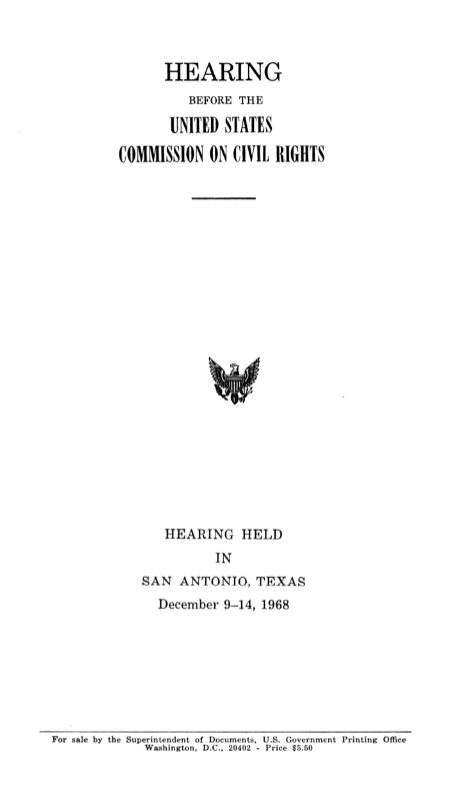
Since the hearings followed Ranger violence during the Starr County strike in 1966, witnesses focused on that. In the testimony below, Arnulfo Guerra, attorney from Roma, TX, noted that there was no reason for Rangers to be in the Valley other than to break the strike.
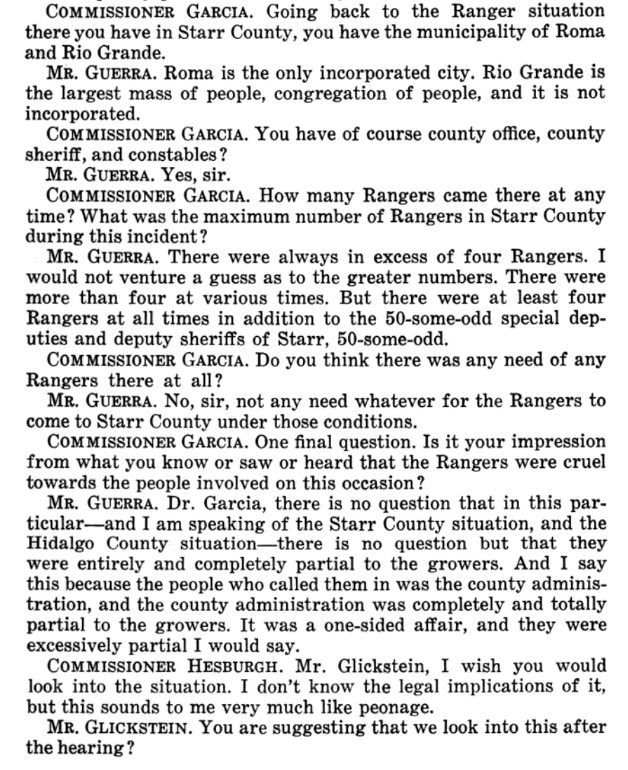
Others testified about their fear of the Rangers, as well as the broader fear in the Mexican American community, because of past and contemporary violence. Farmworker José Martínez’s testimony below (translated from Spanish), makes this point concisely.
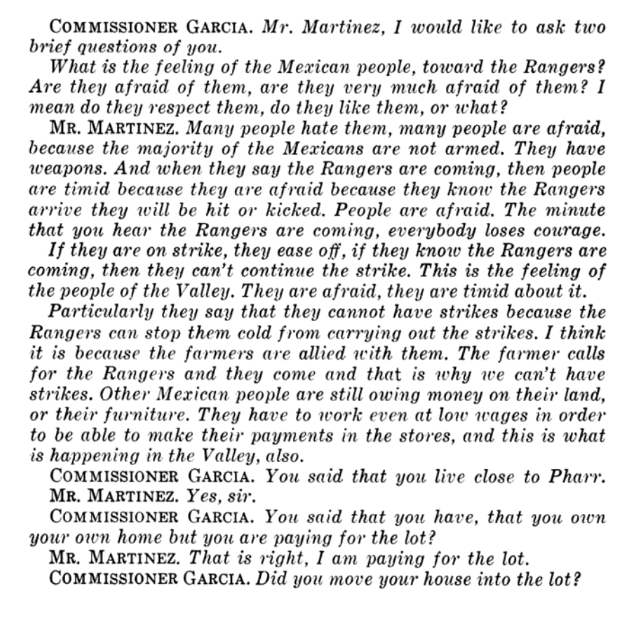
Representatives of the Rangers also testified. The highest-ranking person, Colonel Wilson Speir, headed the Texas Dept of Public Safety. The Commission also heard from Ranger A.Y. Allee. Both defended the reputation of the Rangers among Mexican people. https://refusingtoforget.org/decision-in-allee-v-medrano/
Speir not only offered his opinion that most Mexican Americans respected the Rangers, he read a statement countering the testimony of Mexican American witnesses and further explaining why the Rangers were so beloved (prompting boos and hisses from the audience).
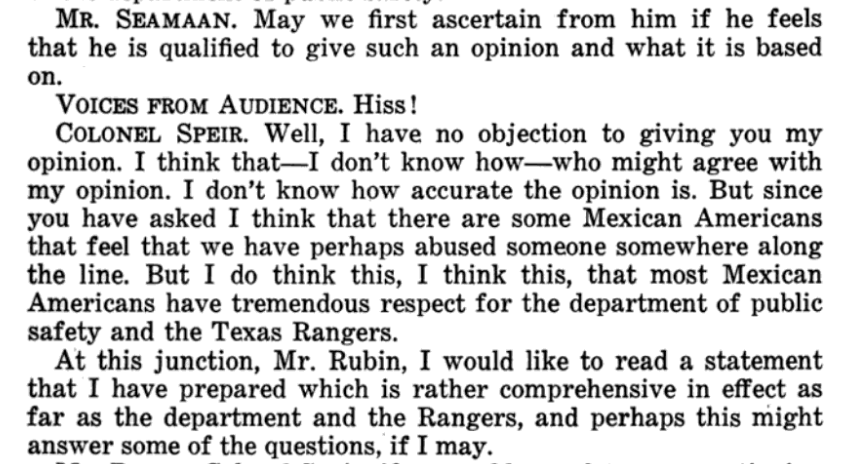
Allee similarly dismissed witness testimony that described on the violence he had perpetrated on Mexican people. He also shared his opinion that the Rangers were well liked in the Mexican-origin community.
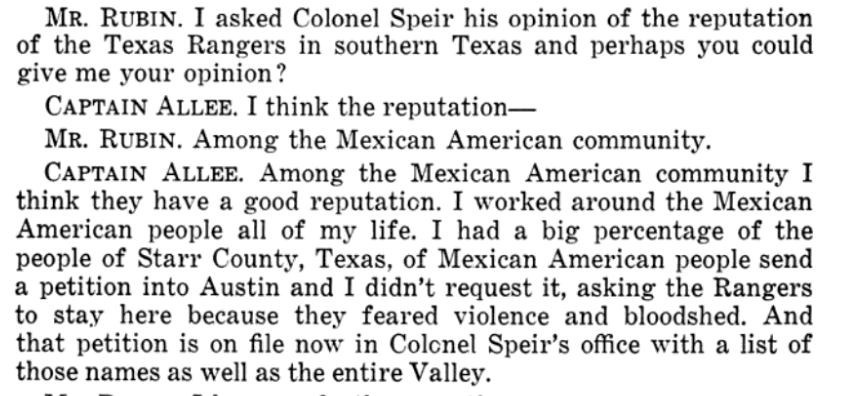
The hearings were embarrassing for Allee. He had previously failed to attend Commission hearings, even after being subpoenaed. Here he said silly things that most people knew were lies, and his opponents heckled him during the hearings.
The hearings gave Mexican-origin folks the chance to share how the Rangers had abused innocent people. They also let the Rangers to defend themselves, which they did poorly. They also show the federal govt’s growing concern about the treatment of Mexican people in the US.

